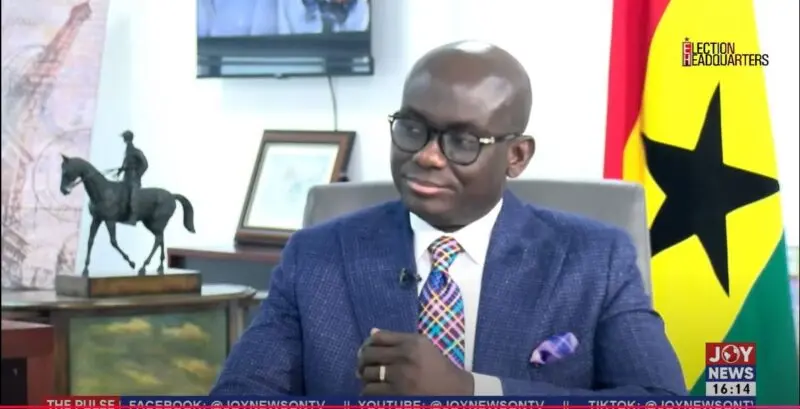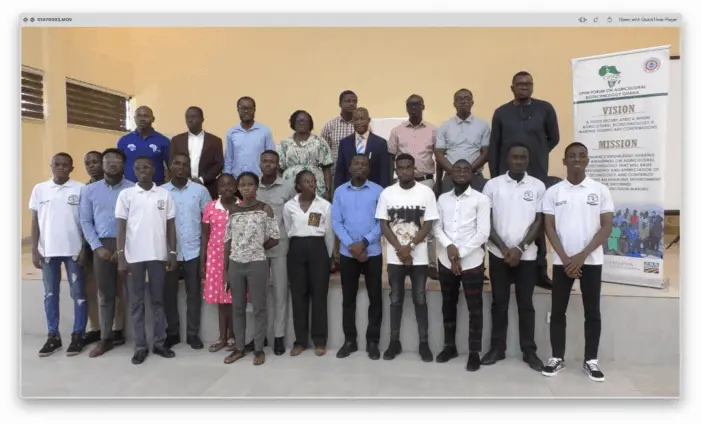In Ghana, the harrowing reality of witchcraft accusations continues to plague vulnerable individuals, particularly women in rural communities. These accusations often lead to banishment, violence, and even death, forcing many to seek refuge in what are known as “witch camps.” Amnesty International Ghana is now urgently calling on Parliament to pass the Anti-Witchcraft Bill Ghana, a crucial piece of legislation aimed at criminalizing these accusations and protecting those at risk. The organization’s Country Director, Genevieve Partington, recently spoke about the bill’s potential impact, emphasizing its objectives to safeguard vulnerable individuals and strengthen social cohesion.
Amnesty International’s Call to Action
Partington has specifically urged Parliament to fast-track the passage of the Anti-Witchcraft Bill Ghana. “I am actually quite happy that this bill, once it is passed, will be signed into law. So far, we have not gotten any pushback from the government. They say if it passes in Parliament, they will sign it,” she stated, highlighting the importance of the bill and expressing optimism about its enactment.
The Anti-Witchcraft Bill aims to criminalize the act of accusing someone of witchcraft, a practice that often leads to severe human rights abuses. By establishing clear legal consequences for such accusations, the bill seeks to deter individuals from engaging in this harmful behavior, therefore protecting vulnerable individuals who are at risk of violence and discrimination due to these baseless claims. Ultimately, the bill is designed to strengthen social cohesion by addressing a source of conflict and division within Ghanaian communities.
Beyond the legal framework, Partington also emphasized the need for government intervention to improve the dire conditions in the so-called “witch camps” scattered throughout Ghana. These camps, intended as places of refuge, often lack basic necessities such as healthcare, clean water, and proper sanitation. Amnesty International has observed that past governments have largely failed to provide these essential services, leaving residents in a state of perpetual deprivation.
Moreover, Partington criticized the state’s failure to adequately investigate and prosecute those responsible for attacks and banishments related to witchcraft accusations. This impunity, she argued, contributes to a cycle of recurring accusations and violence, leaving vulnerable individuals without legal recourse or protection.
Understanding the Anti-Witchcraft Bill
The Anti-Witchcraft Bill proposes several specific legal measures to address the issue of witchcraft accusations in Ghana. While the exact provisions are subject to parliamentary review, it generally seeks to criminalize the act of accusing someone of witchcraft, providing a clear legal pathway for justice for victims. The bill also aims to establish protective measures for individuals accused of witchcraft, such as safe houses and legal assistance.
The bill’s intent to challenge existing cultural beliefs and practices will likely impact social cohesion. By criminalizing accusations, the bill sends a strong message that such beliefs and practices are harmful and unacceptable. This stance may face resistance from some segments of society who hold traditional views on witchcraft, but is expected to reinforce respect for the human rights and dignity of all individuals.
Despite its laudable goals, the Anti-Witchcraft Bill Ghana may face potential challenges and criticisms. Opposition could arise from cultural or religious groups who hold traditional beliefs about witchcraft. Enforcing such a law in communities where these beliefs are deeply ingrained will be difficult.
The potential for misinterpretation or misuse of the law is another concern. It is important that the legislation be carefully drafted to ensure that it does not inadvertently criminalize legitimate expressions of cultural or religious belief, or that it is used to settle personal scores under the guise of combating witchcraft accusations.
The Plight of Victims in Witch Camps
Life inside the witch camps of Ghana is characterized by harsh living conditions and a profound lack of basic services. Residents often lack access to adequate food, water, healthcare, and sanitation. Amnesty International has consistently documented these conditions, highlighting the urgent need for improvement. In addition to the physical hardships, residents also suffer from psychological and emotional distress. Many have been ostracized by their families and communities, and live in constant fear of further violence or discrimination.
Addressing the plight of victims in witch camps requires a multi-faceted approach. Improved living conditions in the camps are a necessity, including the provision of adequate food, water, healthcare, and sanitation. Rehabilitation and reintegration programs are also crucial, and should be culturally sensitive and trauma-informed.
Education and awareness campaigns are also vital in changing societal attitudes towards witchcraft accusations. By promoting critical thinking and challenging harmful stereotypes, these campaigns can help to create a more tolerant and inclusive society where everyone is treated with dignity and respect.
The passage of the Anti-Witchcraft Bill Ghana represents a critical step towards protecting vulnerable individuals and promoting social justice in Ghana. Amnesty International’s call for action underscores the urgency of the situation, and highlights the potential of the bill to address a long-standing human rights issue. As the bill moves through Parliament, it is imperative that lawmakers prioritize the needs of victims and ensure that the legislation is implemented effectively. By working together, Ghana can create a society where no one is subjected to violence or discrimination based on baseless accusations of witchcraft.
Image Source: MYJOYONLINE






















